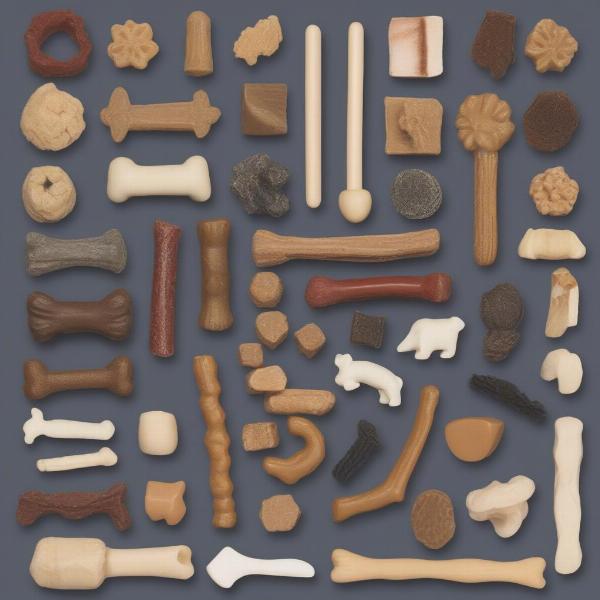Cattle hooves are a common chew treat marketed for dogs. But are they truly beneficial, or do they pose potential risks to our furry companions? This article explores the pros and cons of giving cattle hooves to your dog, helping you make an informed decision about whether they fit into a healthy and safe diet.
Understanding the Appeal of Cattle Hooves
Cattle hooves are appealing to dog owners for a few reasons. They’re relatively inexpensive, long-lasting, and satisfy a dog’s natural urge to chew. Many believe they also help clean teeth and provide essential nutrients. However, the reality is a bit more complex.
The Potential Dangers of Cattle Hooves
While marketed as natural and beneficial, cattle hooves can present several risks to dogs. They are incredibly hard, which can lead to chipped or fractured teeth. Swallowing large pieces can cause choking or blockages in the digestive tract, requiring emergency veterinary intervention. Additionally, some dogs experience digestive upset, including vomiting and diarrhea, after consuming cattle hooves. Finally, improperly processed hooves can harbor bacteria, posing a risk of infection.
Are There Any Benefits to Cattle Hooves?
Proponents of cattle hooves often cite their ability to clean teeth and satisfy a dog’s chewing instinct. While the abrasive texture can have a minor cleaning effect, it’s not as effective as proper brushing and dental care. And while chewing is indeed a natural and essential behavior for dogs, there are safer and more beneficial alternatives to cattle hooves.
Safer Alternatives to Cattle Hooves
Fortunately, there are plenty of safer and healthier chews available for your dog. Dental chews designed by veterinary professionals can help clean teeth and freshen breath while being gentle on enamel. Rubber toys filled with treats can provide mental stimulation and hours of entertainment. And for dogs who enjoy a longer-lasting chew, natural options like bully sticks (from responsibly sourced suppliers) or antler chews can be a safer alternative to cattle hooves.
Making the Right Choice for Your Dog
While the low cost and long-lasting nature of cattle hooves might seem tempting, the potential risks to your dog’s health outweigh any perceived benefits. Prioritizing your dog’s safety and well-being is paramount. Opting for safer chew alternatives will ensure your furry friend enjoys the benefits of chewing without the associated dangers.
 Safe chew toys for dogs
Safe chew toys for dogs
FAQs
- Are cooked cattle hooves safer than raw ones? No, cooking doesn’t eliminate the risks associated with cattle hooves. They can still cause digestive issues and pose a choking hazard.
- Can puppies have cattle hooves? Puppies are especially vulnerable to the dangers of cattle hooves due to their smaller size and developing teeth. It’s best to avoid them altogether.
- What should I do if my dog swallows a large piece of cattle hoof? Contact your veterinarian immediately. This is a serious situation that could require emergency surgery.
- Are there any breeds that should absolutely avoid cattle hooves? All breeds are at risk, but smaller breeds and those with sensitive stomachs are particularly susceptible to problems.
- What are some signs my dog is having trouble with a cattle hoof? Watch for excessive drooling, gagging, vomiting, diarrhea, constipation, or changes in appetite.
About ILM Dog
ILM Dog is your trusted source for expert advice on all aspects of dog care and well-being, from breed selection and nutrition to training and health. We provide practical, evidence-based information to help you make the best decisions for your canine companion. For further information or personalized advice, please contact us at [email protected] or +44 20-3965-8624. Learn more about us at ILM Dog.